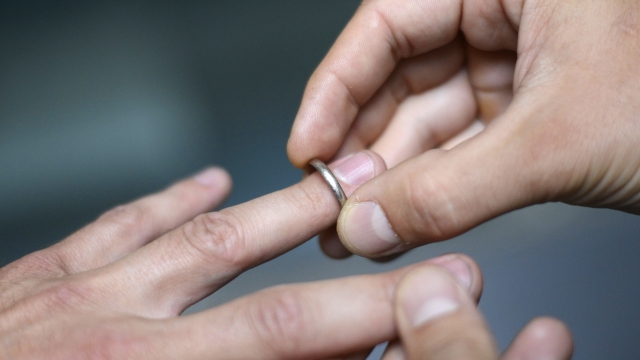The other day, as I was browsing the sites I frequent, I came across this article about abusive behaviors. Naturally, I was curious – the intersection of mental health, love, and abuse is a really big topic to me (and one that I hope my articles do proper justice). However, when I started to read the article, I was taken back. For those who don’t want to read the whole thing, the author seeks to describe some behaviors that he’s identified in his own relationships that can be taken as abusive.
I don’t want to think that you can accidentally abuse someone. It’s so much easier to think of an abuser as the exception, rather than the rule. It’s hard to explore the idea that the potential for abuse lies within each and every one of us.
As I kept reading his article, though, I saw myself in some of these actions. I was speechless – I am an advocate for people getting out of abusive situations, ASAP. Was it really possible that I, too, had created abusive situations for my partners, past and present? I didn’t want to believe it – but I knew I had to.
If you have the time, please read Jamie Utt’s full article (here’s that link again). His article is aimed at cis straight men, but his points ring true for so many of us. In the meantime, here’s a list of 5 abusive things you do that you probably had no idea could be taken as abusive.
1. Acting on our emotions.
Humans are super emotional creatures. There’s some debate as to whether other animals feel the same emotions we do, and in turn whether they’re capable of “actual abuse” in the clinical sense. But humans are definitely capable of feeling emotions, and when we act on those emotions without regard to how they affect others, that is abusive.
One of the most common emotions that affect our relationships is jealousy. At its core, your jealousy is not your partner’s responsibility. None of your emotions are. When you take the step to look through her phone, casually scroll through her Facebook friends list, or otherwise use your jealousy to justify an intrusion on her personal privacy, you are being abusive.
Likewise, our personal insecurities can come into play, too. Your partner’s actions and words may play a part in your insecurities, but make no mistake: Your insecurities are not her fault. They are your reaction to her actions. While she should try to keep your feelings in mind as appropriate, that doesn’t mean she deserves to be held accountable for them.
With these two emotions, we don’t see our actions as abusive, because – after all – part of being in a relationship is accepting that your actions will inspire a certain reaction in a partner. However, if we were to apply that logic to all emotions, anger can turn into aggression, which can turn into physical violence or emotional abuse of a partner. It’s easy to say that what you’re doing “isn’t that bad”, but by excusing these gateway emotional response, we’re setting ourselves up for a worse emotional response down the line.
Instead, you should work through your emotional reaction before taking an action. Emotion is a normal part of the human experience, but your partner deserves a fair chance to speak her side. If you need to let off your emotions, do so in a journal or to a trusted friend – and then, once you’ve calmed down, express your concerns to your partner and allow her to voice her side. There’s a chance your suspicions are exactly right, and you are entitled to your disbelief if the evidence is against her, but you owe her the respect of giving her a chance to explain.
2. Controlling the situation.
This is one that I’ve struggled with for much of my life. We often learn at a very young age that we need to be assertive in order to get what we want. We have to make sure that our own interests are taken care of. These are very valuable lessons to learn, of course, but they also set us up for unintended consequences.
When we start with assertiveness, this can easily shift toward control if we’re not careful. It’s important that we take actions to get the things we want, but we should not force someone else to give us what we want. In that context, it’s easy to see how it can be abusive, but it’s not usually so black and white.
Think over your relationship. When’s the last time you pressured your partner to give in to your will? For example, you want to get a puppy, but your live-in partner doesn’t want a puppy. Just as with any other examples of consent (because coercion is a byproduct of rape culture), if one person says yes and the other says no, the answer is no.
Likewise, your attitude about the situation comes into play, too. Intention does matter, even if it’s not the only thing that matters. Even when you compromise with your partner, the way you treat that compromise makes a difference. We can be unintentionally abusive when we applaud ourselves for being “accommodating”. The word itself is a bit patronizing, don’t you think?
Compromise isn’t about being the bigger person. It’s about being a decent person. And, if you think you deserve a pat on the back for being a decent person, you are not a decent person. If the motive behind your compromise is anything other than fairness and common decency, you’re making yourself a martyr – which is one of the signs of gaslighting.
3. Refusing to listen.
Particularly when we’re affected by stress, anger, or insecurity, we may be prone to ignore the things our partner wants, or the things she asks of us. We might even come up with excuses as to why it’s “not our fault” that we didn’t listen or didn’t remember the things she said. In some cases, those excuses are absolutely true – but, most of the time, they’re just excuses.
Talking to your partner is meant to be a productive experience. She brings her concerns to you because she trusts you to help with them, even if the only “help” needed is a listening ear. If you’re continually making your partner repeat the things she expects from you, you’re telling her that your convenience is more important than her happiness. You’re telling her that what you want is more important than her comfort.
What’s worse is that, by refusing to listen to her (and denying the validity of the things she says), you’re telling her that you know better. While that’s certainly going to be true, some of the time, it’s important to remember that she is her own person. Continually ignoring her wants and needs makes you a bad partner, regardless of the reasons you come up with for why you’re ignoring them.
I think the scariest part of this particular problem is that there’s often a disconnect involved. The partner who doesn’t listen may, in turn, accuse her partner of “nagging”, while the partner being ignored feels that her partner is willfully disregarding her feelings. Assuming that you don’t want that scenario to take over your relationship, you need to make an active effort to listen to her.
Does that mean you need to do everything your partner asks? No – that would make her your controller. But it’s important to listen to her and understand which of her complaints is the most important, and which you can reasonably fix. She is your partner – not your boss, and not your assistant. Treat her fairly, and take her into consideration when making your decisions.
4. Emotionally manipulating her.
Many of us have experienced emotional manipulation at some point or another in our romantic relationships. Sometimes, it’s entirely unintentional, or even conditioned (and condoned) through society. It makes sense that emotions play a big part in our relationships, but using someone’s emotions against them is a terrible way to handle your own emotions.
It’s far too easy to excuse emotional manipulation as just gaslighting and name-calling, but the truth is, emotional manipulation happens more often than we’d like to admit. Any time you withhold sex, affection, or attention from your partner, because of something she’s done (or hasn’t done), you are emotionally manipulating her. Even if you have the best of intentions with your manipulation, it’s still manipulation.
Another common form of manipulation is playing hard-to-get, or using the words “If you loved me you would…” as a precursor for a request. We see both of these behaviors a lot in our favorite “romantic” movies and television plots, but they’re definitely not romantic. They’re about using someone’s desire to make you happy against them in a very personal way.
Let’s think about this one from the other side. Telling someone that their love for you needs to be proven through certain specific actions is unfair, at best, and very abusive at worst. People love differently, and while there are some general signs that someone cares about you and some signs that they don’t, there is no single arbitrary quantifier. Love doesn’t need to be quantified, nor does it need to be qualified.
Less obvious are “relationship tests”, set up to catch your partner in inappropriate behavior. For a long time, I used to tell the people I dated, “If I find out you’re testing me, I will fail… On purpose.” That’s because secretly testing someone is unfair, and it just shows that you are too insecure to be in a relationship right now. That’s not necessarily a bad thing, as long as you realize that and choose not to be in a relationship. But no one should have to jump through hoops to make you happy, whether they know the hoops are there or not.
Instead, discuss your true feelings with your partner, without the passive-aggressiveness that leads to emotional manipulation. If you have a concern, express it as a concern – not as an ultimatum. Chances are, your relationship will be happier and stronger once you let go of your need to control your partner through her emotions. (And she will definitely be happier, too.)
5. Showing aggression when things don’t go your way.
I’m going to level with you guys: I suffer with some temper problems. I have moderate anxiety, and some days it’s incredibly difficult to keep my anger in check. But just because you feel angry does not mean you have to show aggression – and learning the difference between the two is essential to living a happy life.
The main difference between anger and aggression is that anger is an emotion – a normal and perfectly natural reaction to things gone wrong. Aggression, on the other hand, involves an act (or threat) of violence. Sometimes, this violence is sudden and noticeable – such as when a relationship turns physically abusive. It doesn’t usually start that way, though.
The threat of violence can be stated, or it can be implied – such as when Jamie (from the HuffPost article) slammed his hands down on the table and scared his wife. The implication here is that, if he’s willing to slam his hands down on the table to express his anger, he needs that physical release of his anger. You can tell yourself all you want that your anger is “under control” because you only take it out on inanimate objects – but you’re sending your partner a very clear message.
Instead, if you must reach out for a release of your anger, try channeling your anger into physical activity. From a psychological standpoint, it’s a lot more helpful in releasing your frustrations, and it’s really good for you, too. While I don’t recommend exercising with the person you’re upset with, necessarily, it’s a great way to harness your adrenaline. Remember everything you know about “fight or flight”? Well, the goal here is to use “flight” to prevent “fright”. (See what I did there?)
Physical exercise works for a number of reasons. First, it produces endorphins, which are your body’s natural feel-good chemicals. Second, it helps to lower your blood pressure, which is both a cause and an effect of elevated stress levels. Third, it helps to burn off extra energy and adrenaline that can cloud your judgment and lead you to poor relationship decisions.










One thought on “5 Ways You’re Unintentionally Abusing Your Girlfriend”
hard hitting